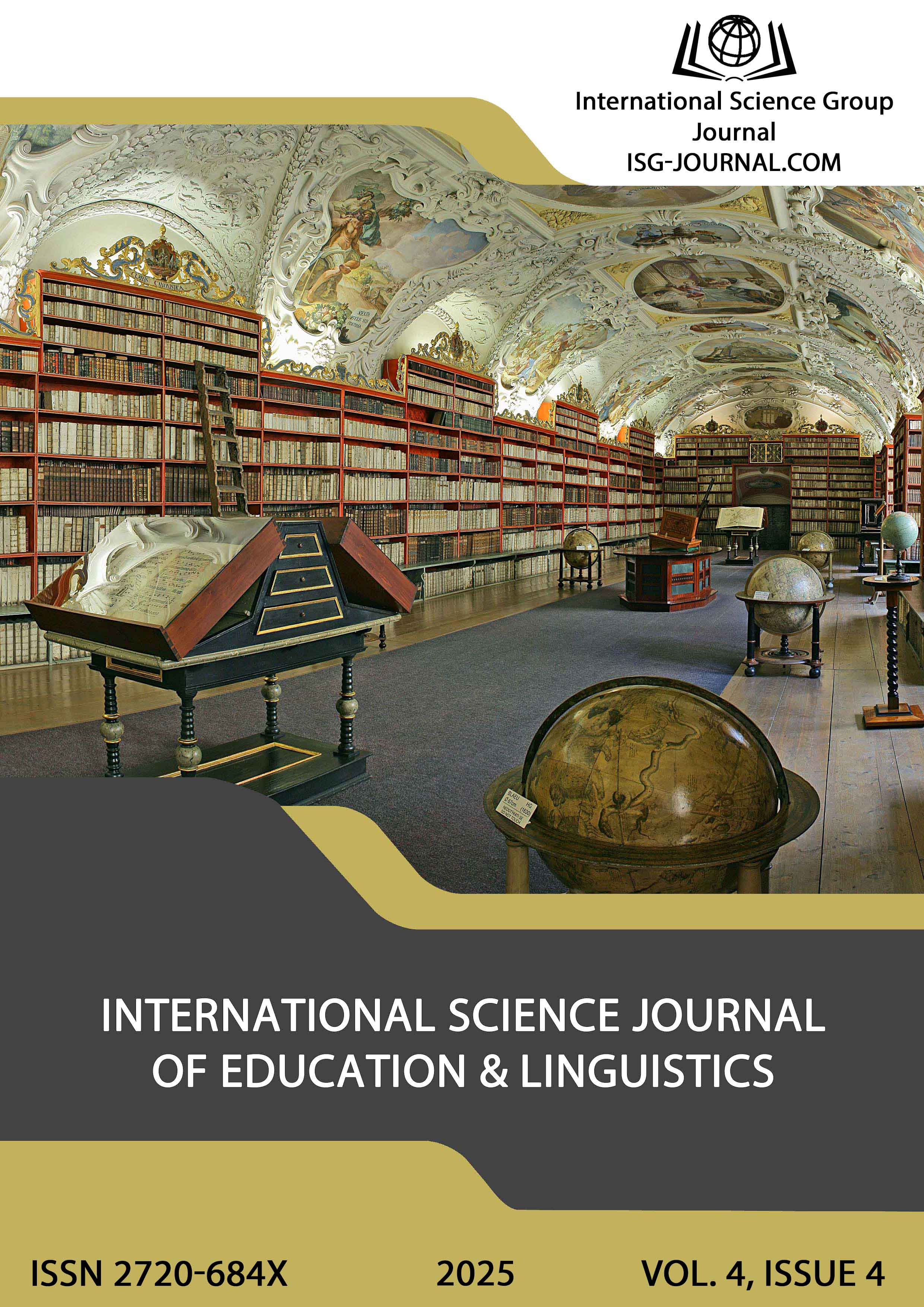Turkish culture in Germany: development, transformations and literary presence of Emine Sevgi Ozdamar
DOI:
https://doi.org/10.46299/j.isjel.20250404.05Keywords:
Turkish literature, Emine S. Ozdamar, migration literature, interlingual poetics, transnational identity, deconstruction of the canonAbstract
This article provides a comprehensive analysis of the phenomenon of Turkish culture in Germany through the prism of the literary and theatrical works of Emine Sevgi Ozdamar, a writer, playwright and cultural critic of Turkish origin. The object of the study is the transformation of the national literary canon in the context of a post-migration society characterised by interlingualism, cultural hybridity and polyphony as new principles of artistic representation. Particular attention is paid to Ozdamar's linguistic strategy, which is based on stylistic hybrids, syntactic disruptions and deliberate ‘erroneousness’ as a form of aesthetic resistance to normative linguistic norms. The analysis covers autobiographical motifs, migration experience, and criticism of assimilation policies, which are embodied in the author's prose and drama, transforming her work into a space for decolonial reflection. Methodologically, the study is based on an interdisciplinary approach that integrates comparative literary studies, postcolonial studies, feminist criticism, and sociolinguistic analysis. The reception of Ozdamar in the German cultural context is considered separately — from marginalisation to canonisation, particularly in the context of her awarding the Georg Büchner Prize. In particular, the study emphasises Ozdamar's importance as a key voice that blurs the boundaries of national and cultural identities, contributing to the formation of new models of intercultural dialogue and creative self-reflection in the context of globalisation. As a result, it has been proven that Emine Sevgi Ozdamar's work is not only a significant artistic phenomenon, but also an intellectual challenge to traditional notions of national literature, establishing a new paradigm of authorship as an interlingual, transcultural and corporeal phenomenon that responds to the global challenges of contemporary Europe.References
Adelson, L. A. (2005). The Turkish Turn in Contemporary German Literature: Toward a New Critical Grammar of Migration. New York: Palgrave Macmillan.
Berman, R. (1998). Enlightenment or Empire: Colonial Discourse in German Culture. Lincoln: University of Nebraska Press.
Cheesman, T. (2007). Novels of Turkish German Settlement: Cosmopolite Fictions. Rochester, NY: Camden House.
Fachinger, P. (2007). Transcultural Memory and Gendered History in Emine Sevgi Özdamar’s Prose. In: Women in German Yearbook: Feminist Studies in German Literature & Culture, 23, 171–190.
Febel, G. (2013). Sprachgrenzen – Körpergrenzen: Sprache und Geschlecht bei Emine Sevgi Özdamar. In: Zeitschrift für interkulturelle Germanistik, 4(1), 47–62.
Göktürk, D. (2002). Turkish Delight – German Fright: Migrant Identities in Transnational Cinema. In T. Hake & J. Richers (Eds.), The German Cinema Book (pp. 248–256). London: BFI Publishing.
Kerslake, C. (2011). Language and Identity in Turkish-German Literature. Middle Eastern Literatures, 14(1), 35–52. https://doi.org/10.1080/1475262X.2011.583520
Laudatio für Emine Sevgi Özdamar. (2022). Deutsche Akademie für Sprache und Dichtung. Retrieved from: https://www.deutscheakademie.de/preise/georg-buechner-preis/emine-sevgi-oezdamar
Özdamar, E. S. (1992). Das Leben ist eine Karawanserei, hat zwei Türen, aus einer kam ich rein, aus der anderen ging ich raus. Köln: Kiepenheuer & Witsch.
Özdamar, E. S. (1998). Die Brücke vom Goldenen Horn. Köln: Kiepenheuer & Witsch.
Şenocak, Z. (2008). Vom Land der Türken zur türkischen Präsenz in Deutschland. In Atlas der Globalisierung. Le Monde diplomatique. Retrieved from: https://monde-diplomatique.de/artikel/!810576
Seyhan, A. (2001). Writing Outside the Nation. Princeton: Princeton University Press.
Terkessidis, M. (2010). Kulturkampf: Das Ende der Multikulti-Gesellschaft. Hamburg: Hoffmann und Campe.
Wilson, R. (2004). Writing and Identity: The Discursive Construction of the Self. Amsterdam: Rodopi.
Yildiz, Y. (2012). Beyond the Mother Tongue: The Postmonolingual Condition. New York: Fordham University Press.
Downloads
Published
How to Cite
Issue
Section
License
Copyright (c) 2025 Iryna Vitaliivna Prushkovska

This work is licensed under a Creative Commons Attribution 4.0 International License.





